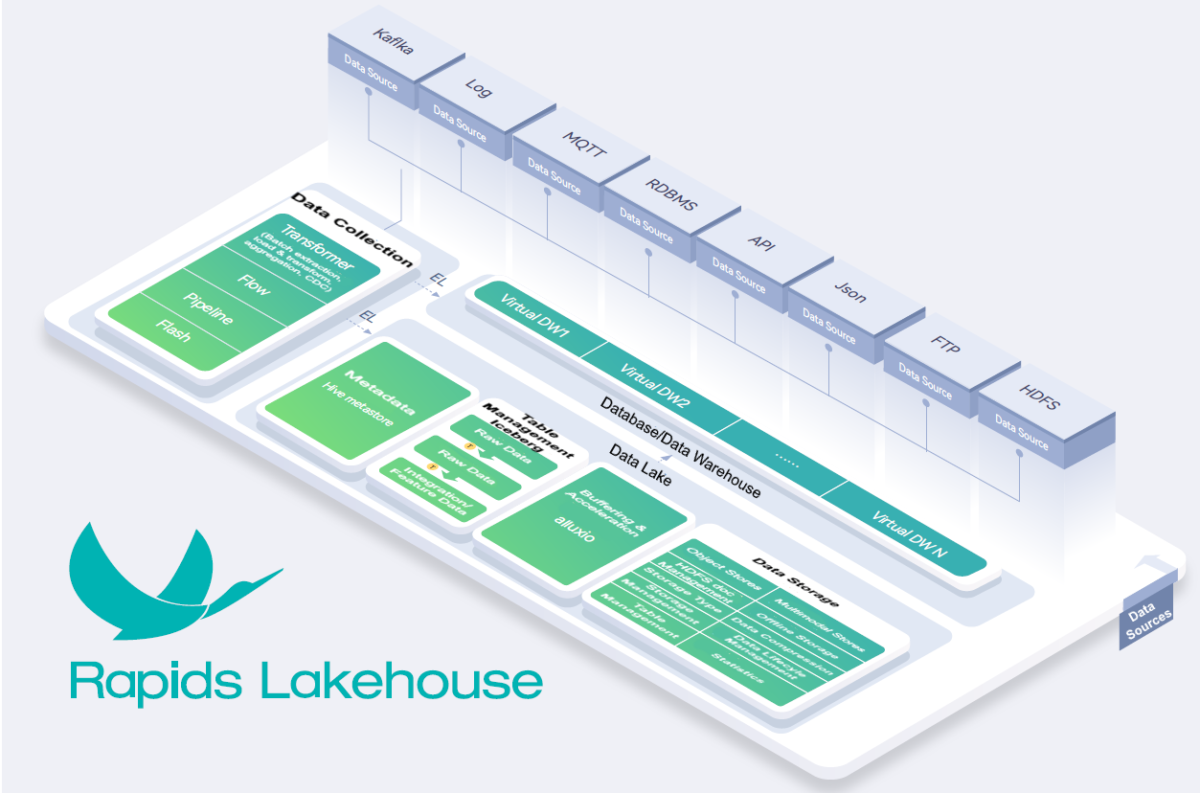
In recent years, digital transformation has been driving advancements across various industries, making enterprise analytics more intricate. Enterprises are struggling to manage mounting data volumes with escalating complexity. Although real-time data empowers companies to make quicker decisions based on the most up-to-date information, real-time data processing has become more and more challenging. With Multimodal data processing, the heavy workload demands efficient processing to avoid a data swamp, which can lead to increased operational complexity, maintenance difficulties, and high costs.
In Gartner’s Hyper Cycle for Data Management 2021 report, Lakehouse has been identified as an Innovation Trigger. Gartner defines a data lakehouse as a “converged infrastructure environment that combines the semantic flexibility of a data lake with the production optimization and delivery of a data warehouse.” A lakehouse solution is designed to overcome challenges associated with traditional data warehousing and data lakes, such as data silos, data quality issues, and data latency. Gartner notes that the Lakehouse technology can provide an integrated platform for data storage and processing, enabling organizations to perform data analysis and generate insights more efficiently.
RapidsDB has launched Rapids Lakehouse, a unified data management platform that seamlessly integrates the best aspects of data lakes and data warehouses. This all-in-one solution empowers businesses to efficiently manage large-scale and diverse datasets while performing real-time analytics. By incorporating AI/ML technology, Rapids Lakehouse offers a more comprehensive and accurate view of data, enabling organizations to leverage real-time insights for a competitive edge to enhance their business capabilities and establish industry leadership.
Rapids Lakehouse sets itself apart from similar products by offering the following features:
- Massive real-time data processing: Rapids Lakehouse supports PB-scale multi-modal data storage, real-time online data analysis, and long-term data archiving and retrieval.
- High-performance batch and stream processing: Rapids Lakehouse outperforms Spark in steam processing with a 40% higher throughput and 28% lower latency. Its offline synchronization rate exceeds 200,000 TPS, and the average latency for Change Data Capture (CDC) is under 4 seconds.
- Intelligent use case applications: Based on more than a dozen AI, machine learning, and deep learning algorithms, Rapids Lakehouse supports a wide range of financial services, telecommunications, intelligent manufacturing, smart energy, and government sector uses cases.
- High scalability: Rapids Lakehouse adopts a distributed architecture for both computing and storage, allowing for horizontal scaling of hundreds of nodes. This architecture supports online cluster expansion and node replacement, ensuring uninterrupted business operations.
- Open and compatible: Rapids Lakehouse supports multiple deployment modes such as clustering, virtualization, and containerization. It is also compatible with various software and hardware as well as open-source data ecosystems, and supports multilingual OpenAPIs, making system integration a breeze.
- Data governance: Rapids Lakehouse provides robust data governance for data lakes, ensuring data integrity, manageability, and traceability. It also enables customers to build feature stores that cater to their industry-specific characteristics, meeting their data analytics and ML training requirements.
- Modular integration: While offering its all-in-one platform, Rapids Lakehouse also provides modular solutions that safeguard customers’ current capital investments. This approach promotes cost control and fosters ecological cooperations with industrial partners.
As more and more enterprises are looking to leverage data exploration across broader fields, including data science, data engineering, data applications, and data services, to unlock new business opportunities, Rapids Lakehouse can significantly enhance their big data management and analysis capabilities. It delivers value across various industries and helps businesses quickly respond to ever-changing needs to boost operational efficiency, promote innovation, and increase profitability through their data assets while reducing costs.
